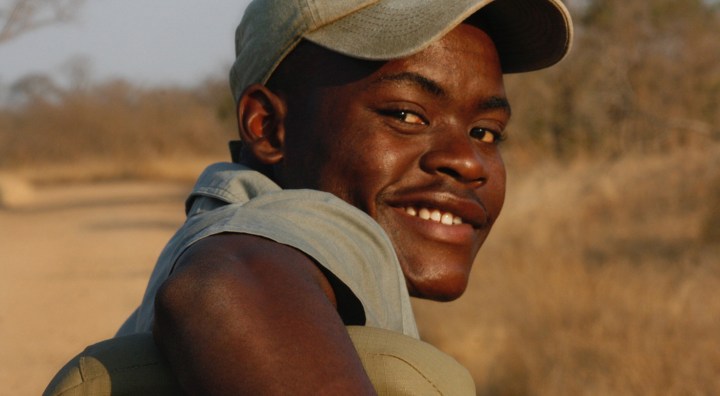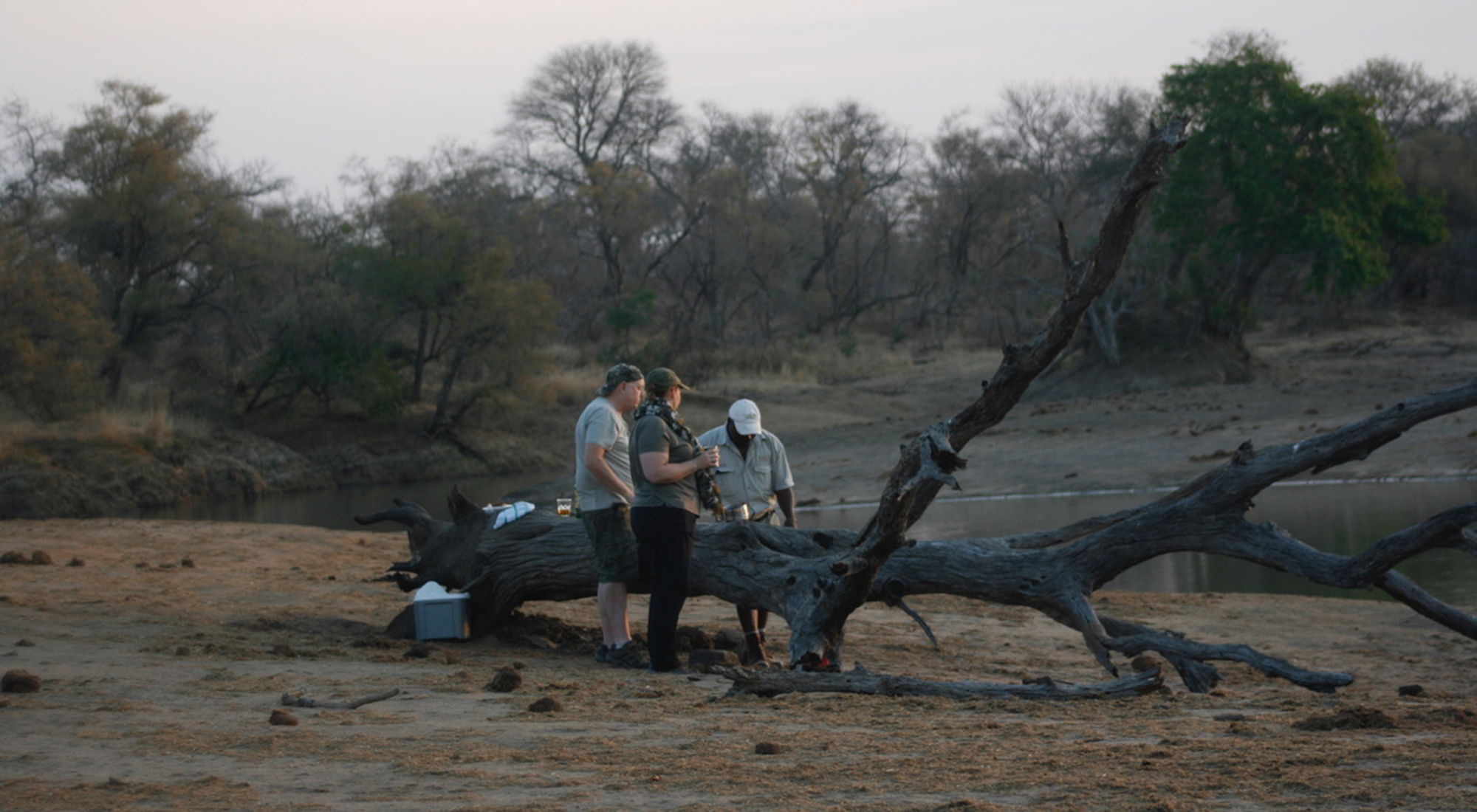MAVERICK CITIZEN
Land claims bedevil Kruger Park’s best-kept secret

Mpumalanga’s Manyeleti Game Reserve is one of the great ironies of the SA tourism industry. Reserved for black people during apartheid, it’s now a premium wildlife location, part of the Greater Kruger Park. Four private concessions operate in ‘the Manyeleti’, but with a disputed land claim award and big-city lawyers involved, the elephants are trampling the grass and residents are a little nervous...
“My involvement with Manyeleti goes back to the old Gazankulu homeland. And the first concession agreement was signed by the chief minister himself.”
Lood Schulz is the owner of an upmarket safari camp, on the very same concession referred to above in the Manyeleti Game Reserve. It is part of the unfenced Greater Kruger National Park.
It is a tented camp, with a rustic feel and an excellent reputation. The reserve, which borders the better-known Timbavati Game Reserve, is part of the patchwork of game reserves of which the Kruger today is comprised.

The attraction of the Manyeleti part of the Greater Kruger is good game, minimal traffic and comparatively few visitors. (Photo: Angus Begg)
Schulz tells a story of deep, historical involvement with the rural communities in the area.
“Soon after I settled in Manyeleti I made contact with the surrounding communities. Apartheid policies had identified the Manyeleti area as a feeding area for the mining industry… [but] a change of heart by the apartheid government during the 1960s amended this policy and declared that a game reserve will be established instead.”
In keeping with the gnarled and twisted tenets of apartheid, this beautiful land of tall trees was to be reserved for black holiday-makers. But for that to happen the black South African residents had to be moved off their land.
“Tsonga people who then occupied the soon to be Manyeleti Game Reserve were forcibly removed to an area adjacent to Manyeleti where they are still living today.”
Schulz says the 1990s “changed everything”.
“The writing was on the wall for the apartheid government. Many of us realised that tourism was the new game of the future. I was fortunate to obtain a concession from the then-Gazankulu homeland government, which was still in power.”
Schulz is speaking a language many millennials won’t understand, rooted in the lexicon of apartheid, but he clearly loved the land, and as he says, he saw the value in this “new game of the future”.
Fast forward 25 years and the Manyeleti, this former apartheid game reserve, is somewhat ironically regarded by many lowveld wildlife aficionados as the Kruger Park’s best-kept secret. It offers quiet roads, excellent sightings, and no traffic jams. Sharing this sprawling piece of idyllic lowveld bush is one government camp and five private lodges.
If only it were so simple.
Tucked away in the long grasses, spied upon by vultures atop the Manyeleti’s long-dead leadwood trees, and whispered about in the villages outside the reserve, is one of the most complex, possibly most controversial, land claims in South Africa.
It is, with Cape Town’s District Six wasteland, at 20 years and growing, probably the country’s oldest land claim. The absence of resolution is alarming, not least for the claimants, who number “131 families verified after a comprehensive forensic audit”, says Schulz.
But that figure, says the chairperson of the Manyeleti Community Property Association (CPA), John Ndlovu, is incorrect. “It is over 250 families… in May the CPA received the title deeds, it is finished”.
Apparently not.
Splinter groups, lawyers and trampled grass
Fellow land claimant, and seemingly sworn enemy Andries Sihlangu, who unsuccessfully contested the chairmanship of the CPA, is not in agreement.
Somewhere between 1998 and 2002, the two main Manyeleti community bulls, Sihlangu and Ndlovu, started trampling the grass, creating thunder.
“He [Ndlovu] started to hijack the claim and include new unverified [land claimants] members in the list and bringing investors and sign agreements of concessions behind our back,” says Sihlangu.
“It is not resolved in Sihlangu’s mind,” says Ndlovu. “He was part of the committee election. He wanted to be the chairperson. But the people had spoken.”
So opposed to Ndlovu and these added claimants is Sihlangu that he formed a claimant splinter faction called the Concerned Group.
Unpacking the history of the Manyeleti land claims, Schulz says the first one, made in 1997, was rejected.
It’s a fair bet that when the second claim was made in 1998, as he confirmed, the claimants wouldn’t have thought they’d still be here 21 years later, watching the summer thunderclouds roll over land they believed was theirs. Or that it could get so complicated.
Back then, maybe Sihlangu, Ndlovu and their fellow claimants watched those clouds roll overhead together, possibly even over a carton of mageu brew and nyama choma. While that is pure conjecture, what is as certain as an old taxi getting stuck on a dirt road after a big rain, is that when power, egos and money are involved in the lowveld, there will be thunder.
Sihlangu says he has a Webber Wentzel attorney working pro bono to fight the award of the title deeds to the CPA. He says Schulz assisted him in getting the legal assistance.
“He [Schulz] is the one we started [the land claim] with in 1998. He helped registering this claim right from the onset. He was operating his bush camp by then. Lood helped us to find him [the attorney] as he knew he was the one who helped Makuleke land claim [the first successful Kruger* land claim].”
Some voices carrying along the dirt roads of the reserve say the involvement of lawyers proves not all is as it seems.
The connection between the Webber Wentzel buildings in Cape Town and Johannesburg and the dusty Manyeleti of wild dogs and marula trees is not immediately obvious. Until I speak to Moray Hathorn, the lawyer acting pro bono for Sihlangu and his Concerned Group.
Hathorn confirms this argument is about the disputed extra claimants in Ndlovu’s faction. He says the chief land claims commissioner, in an effort to resolve an impasse older than two stray dogs, ordered a forensic investigation company to conduct an investigation into the bona fide claimants in the Manyeleti in 2017.
Hathorn (taking into account that he is a lawyer acting for a client), says the company contracted, Nexus, did a thorough, scientific study, using GPS and archive records, and came up with a list of 151 families.
A total of 154 families were excluded. And in the flap of a dung-beetle’s wing the tale gets complicated.
“Two agreements have fallen apart [since the first claim was made]. I act in litigation for the Concerned Group, led by Sihlangu, which was excluded from the negotiation table. My clients are now admitted to the negotiating table.”
Hathorn says although the Land Claims Court (LCC) accepted the findings, “for some reason” it wasn’t accepted by all. The tale becomes as convoluted as the web the golden orb spider weaves across a road from one bush to another.
Hathorn says the LCC wants the story to be “settled” by June 2020, and that he’s working through lists now, still finding some people who shouldn’t be on the list.
Like raindrops from a hesitant, cloud-laden sky, from concessionaires I hear concerns expressed about conflicting interests. Word has it that a Webber Wentzel (WW) partner involved in the neighbouring Thornybush Game Reserve has a connection to Manyeleti. Hathorn says one of the WW partner’s sons may be involved in a neighbouring reserve, but he’s heard of nothing untoward in that regard.
From another, I hear that Schulz, who originally had a concession with the Gazankulu government, needs a connection to the land claimants to hang on to his land. CPA chairperson Ndlovu is unequivocal in his dislike of the original Manyeleti lodge concessionaire, probably because Schulz supports the earlier-mentioned Concerned Group, led by his rival claimant, Sihlangu.
“Lood is a bastard, that one. He’s not wanted. He is frustrating the landowners. He doesn’t have a lease. Only with Andries [Sihlangu]. He’s a conman. I don’t understand that he has not been evicted. Immediately I get the land, I will evict him.”
Follow-up questions put to Schulz in recent weeks are awaiting answers.
In the meantime, considering the claim was lodged 21 years ago, the claimants should have been earning a decent income for well over a decade.
If one considers how well some of the private concessions in the Kruger are doing, with the most expensive lodges charging as much as R30,000 per night and boasting high occupancies, those concessions in the quieter and more exclusive Manyeleti have the potential to do very well for both the concessionaires and their landlord, the Mpumalanga Tourism and Parks Agency (MTPA).
The MTPA’s communications officer, Kholofelo Nkambule, confirms the potential in the concessions.
“They [the four concessions] are currently experiencing a relatively good occupancy rate. We currently generate R5.9-million per annum from these concessions. Their participation in the reserve contributes towards the MTPA achieving its financial goals. It should be noted that when you compare the facilities operated at KNP and Manyeleti, they operate at different standards and the number of rooms are not equal.”
Which speaks to potential. Nkambule confirms that the four concessions are earning their keep, but given the success of the Kruger “cousin” concessions, there is no reason the Manyeleti cousins aren’t doing better.
It should be simple. Yet, over the past six weeks, repeat emails to three of the relevant parties at the Rural Land Claims Commission (RLCC) have not been answered.
Even the MTPA’s Nkambule has received no response.
“Sadly, we still haven’t received any feedback from RLCC as such. It makes it difficult to respond to matters relating to the land claims issues at Manyeleti.”
“This could be the biggest land claim scam in the country,” says one anonymous voice of the Manyeleti land claim, a voice that chose to remove itself when seeing the politics at play.
Another anonymous concessionaire says, “I prefer not to comment at this time. We’re at a very sensitive stage with MTPA and land claimants.”
Twenty years of sensitivity haven’t put the people back on their land, and Schulz’s original response to written questions suggests he senses a threat to his own position: “I have a vested interest and will fight to protect my interest.” Maybe it’s a good thing he has Sihlangu on his side.
A party with a significant interest in the Manyeleti sums it up thus, taking it out of the lowveld and on to the national map:
“There is a continuous divide between national and provincial policies. National drives intentions, provincial agendas fuck it up.”
I’m sure she’s not alone in her erudite analysis. MC
* About 1500 Makulekes were forcibly removed from their homes in 1969, in what is today the northernmost part of the Kruger Park, in order for that land to be integrated into the greater Kruger National Park. The land was returned to the Makulekes after a successful land claim in 1998, with the clan choosing to invest in tourism rather than resettling the land.
Angus Begg is a freelance journalist and award-winning television producer.



















 Become an Insider
Become an Insider